According to futurism.com, urban farms can be as simple as traditional small outdoor community gardens or as complex as indoor vertical farms, but, regardless, the trend is changing where we get our food and improving attitudes about gardening and farming, particularly in urban areas.
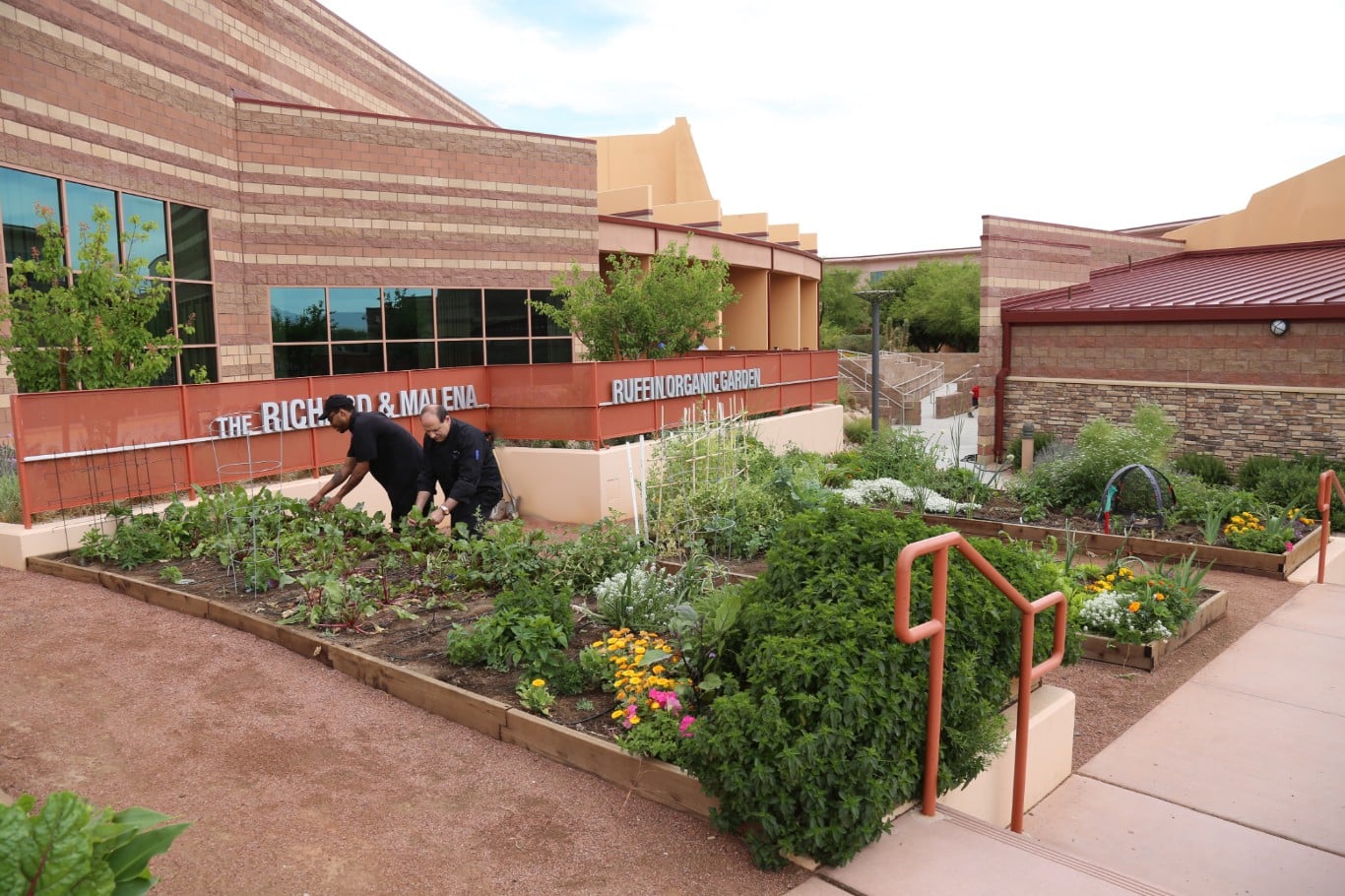
According to Norm Schilling, President of Las Vegas-based Schilling Horticulture Group, developing a love and appreciation for farming and gardening is ideally cultivated with the young, so schools are the ideal place to introduce kids to the idea of growing their own food.
“Teaching children how to grow their own food and getting them excited and interested in gardening is not just a trend, it’s a way of life, and we are excited with all the advances being made in Las Vegas right now,” said Schilling, who also hosts KNPR’s popular Desert Bloom program and is regarded as Southern Nevada’s favorite gardener.
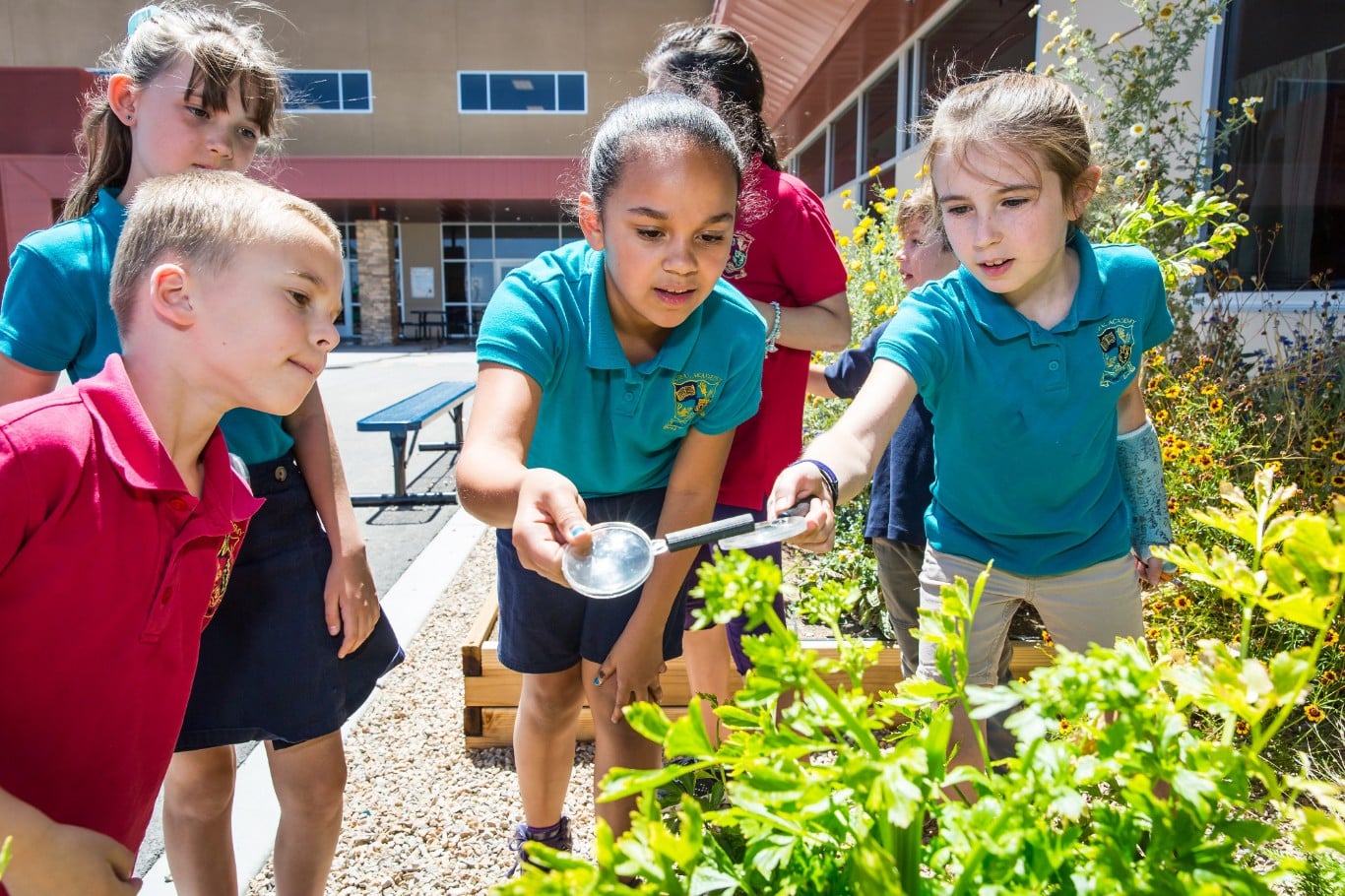
Even the Nevada state legislature is allocating funds to help launch and support garden farms at Southern Nevada schools. In 2017, 29 Clark County School District schools received a total of $230,000 in gardening grants with a focus on teaching children about healthy food choices. While public funding for school gardens is often directed to underserved areas, in the upscale master-planned community of Summerlin, the community’s developer, The Howard Hughes Corporation, is helping to underwrite garden farms in the community’s schools through relationships with two nonprofits that specialize in helping schools to start school farms: Green Our Planet and Garden Farms of Nevada.
In Summerlin school farms have been recently launched with donations from The Howard Hughes Corporation at the community’s two newest elementary schools which opened in 2017 – Billy and Rosemary Vassiliadis Elementary School and Shelley Berkley Elementary School. And last year, Hughes supported the launch of a school garden program at Doral Academy of Nevada, Red Rock Campus. In fact, Doral held its first farmers market last spring, selling and sharing produce yielded from the school’s first ever crops.
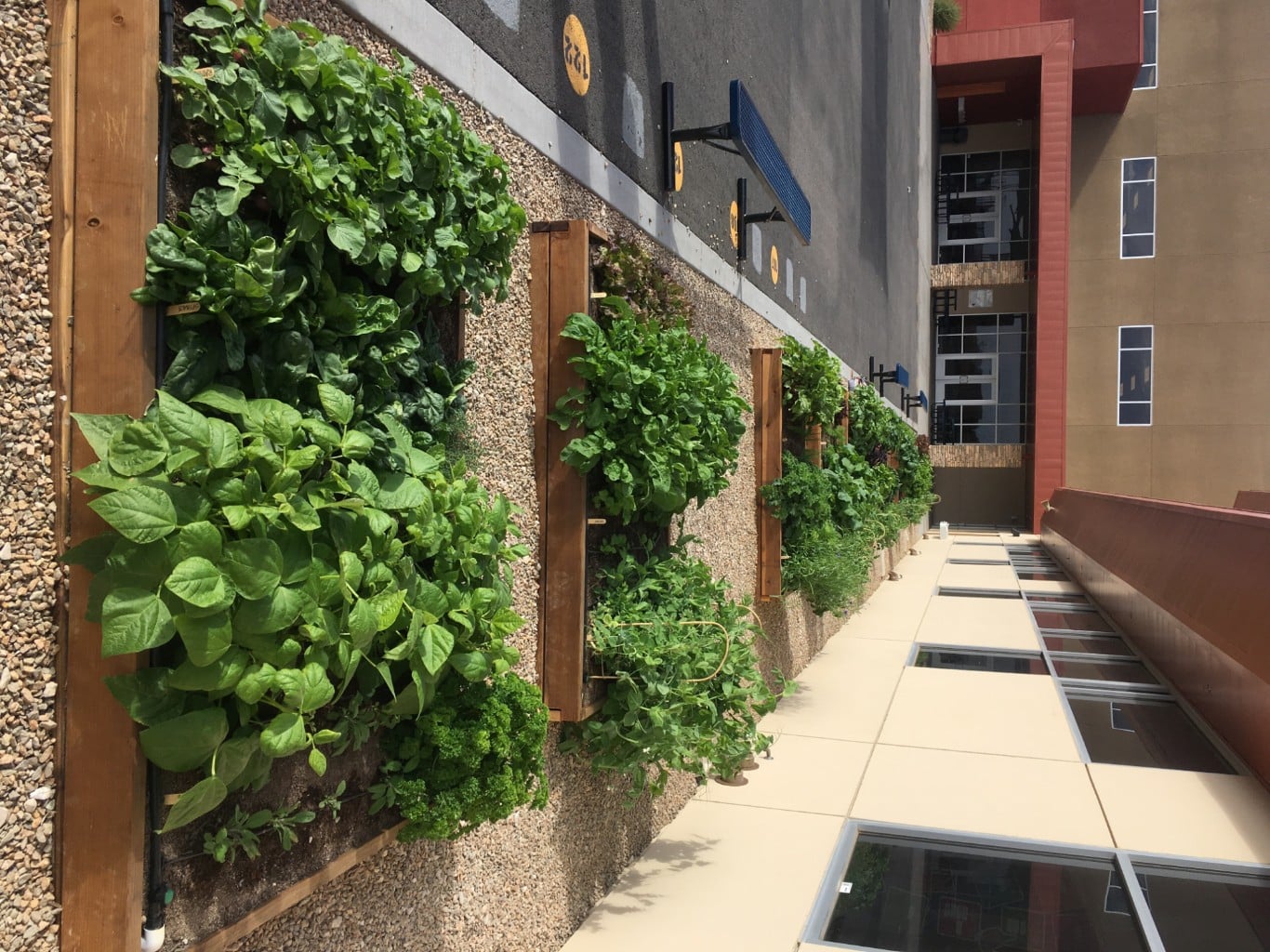
According to Tom Warden, Senior Vice President, Community and Government Relations for Summerlin, school gardens are a focus for the corporation that is now committed to launching them in every public and private school in Summerlin over the next few years.
“We provide initial funding and nonprofits like Green Our Planet and Garden Farms provide the expertise and know-how to make school gardens a reality; demonstrating how they can be used to teach math, biology and environmental sciences incorporating their operation into the curriculum,” said Warden. “The benefits are incalculable and underscore our own corporate and community culture to promote a healthy, active outdoor lifestyle right here in Summerlin.”
At The Alexander Dawson School, a private school in Summerlin, the Richard & Malena Ruffin Organic Garden is more than just a place of learning with an outdoor classroom and firepit, it functions as a built-in farmers market for the school producing a yearly harvest of over 10,000 pounds of produce. Every morning the school’s chef and kitchen staff pick fresh vegetables to incorporate into the meals served to students in the school’s dining hall.
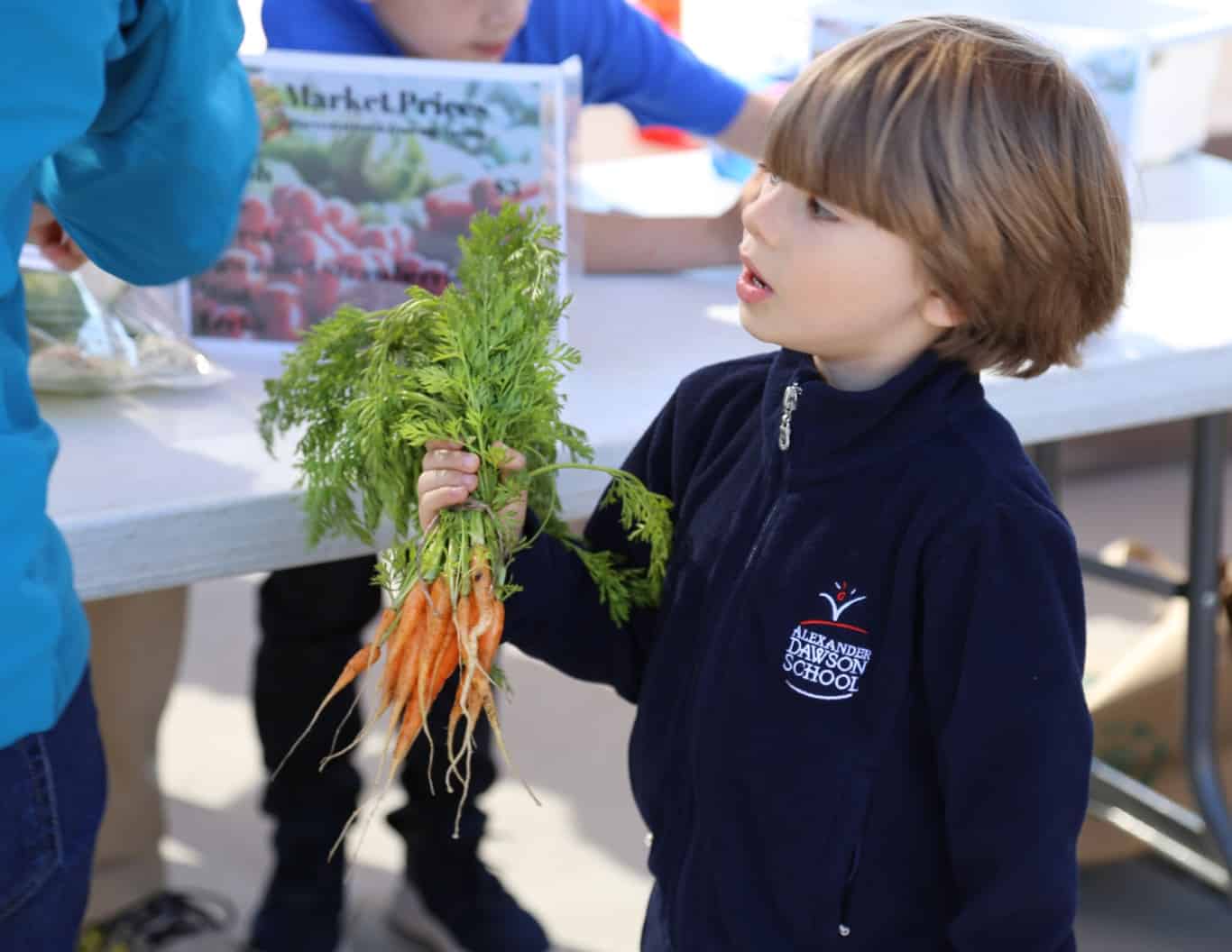
The typical American child spends an average of eight hours per day in front of some kind of electronic device, according to the Kaiser Family Foundation. A sedentary lifestyle, coupled with poor food choices has increased childhood obesity and related conditions like diabetes. And dropping test scores are also well-documented nationwide. So how can school gardens help address some of these issues?
In a comprehensive review of 20 years of literature on school garden programs, 93 percent of the studies reported improved student performance in science; 80 percent saw improvement in math; and 72 percent noted improvement in language arts. In fact, two 2010 studies by the National Wildlife Federation noted significant improvements in test scores in low income areas of Kentucky and Tennessee as a result of the incorporation of school gardens into the curricula.
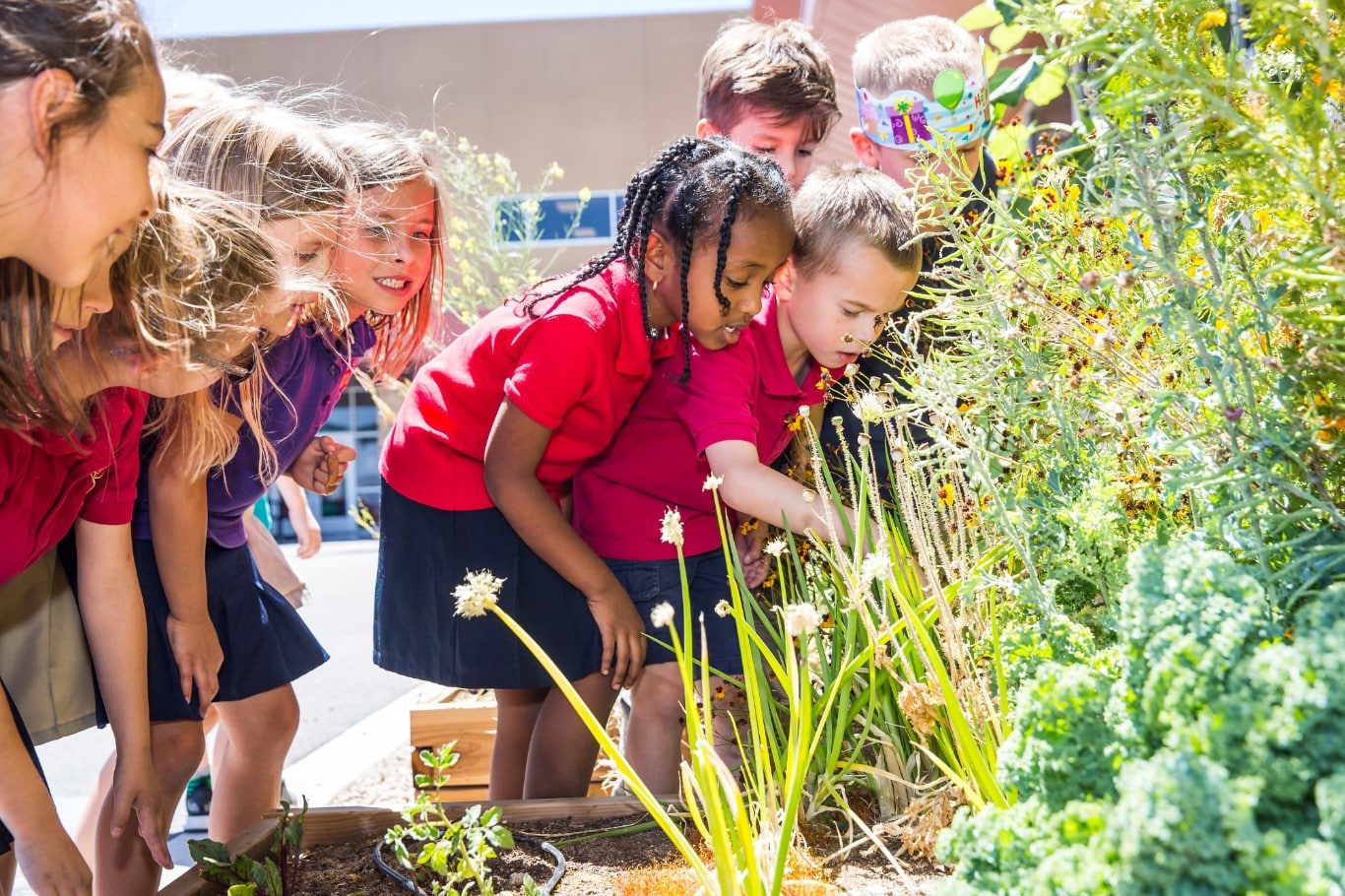
Along with an increase in environmental awareness, school gardens are also credited with increasing students’ interest in eating fruits and vegetables, particularly in low income areas where many children don’t have regular access to fresh produce. Of course, the lifetime benefits of a healthy diet, which includes fruits and vegetables, are well documented.
“If we can help students learn how to eat well as children, they can help to prevent or delay chronic disease conditions over their lifetime,” said Schilling. “Developing an interest in gardening is a natural first step that often stays with people through their entire life. It engages and connects people with healthy food, and kids truly love to eat what they grow.”













